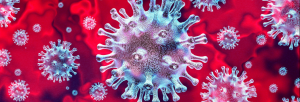People with Rare Disorders Handle COVID-19 Outbreak
 |
Article to be published in upcoming Footsteps publication
Spring 2020 |
People with rare disorders know how to handle being sick. We’re used to isolation. We’re resilient. That’s why the virus COVID-19 should seem less threatening to us, according to Marshall Summar, M.D., Director of the Rare Diseases Institute at Children’s National Hospital, Washington, D.C. Dr. Summar spoke as part of a NORD webinar on March 31, 2020, with two other rare disease experts.
“People with EM or other rare disorders are no more likely to be infected with the virus than are members of the general public, but we should have a plan, in case,” Dr. Summar said. Any plan includes having a supply of prescription medicines on hand. Knowing whom to call if we do get sick—usually our primary care provider—is part of the plan. Taking exercise walks around the neighborhood, staying at least 6 feet away from other people; wearing a mask, especially if we’re sick, anytime we go out. Also, in the plan should be shopping during off hours when the stores are less crowded and touching only the items we are going to buy.
“It’s normal to have strong emotional reactions” when faced with abrupt change, said Albert Freedman, Ph.D., counseling psychologist and parent of a child with a rare disabling disease. When COVID-19 suddenly hit the news, our sense of safety was threatened and the first reaction for many was panic. But people in the rare disease community are adaptive, resilient and have experience with being isolated, which is what everyone Is being asked to do to keep the virus from spreading.
Dr. Freedman recommends that we focus on what is within our control such as taking care of ourselves by eating a good diet and getting enough sleep, staying connected to others, limiting time spent listening to the news and keeping a positive attitude.
